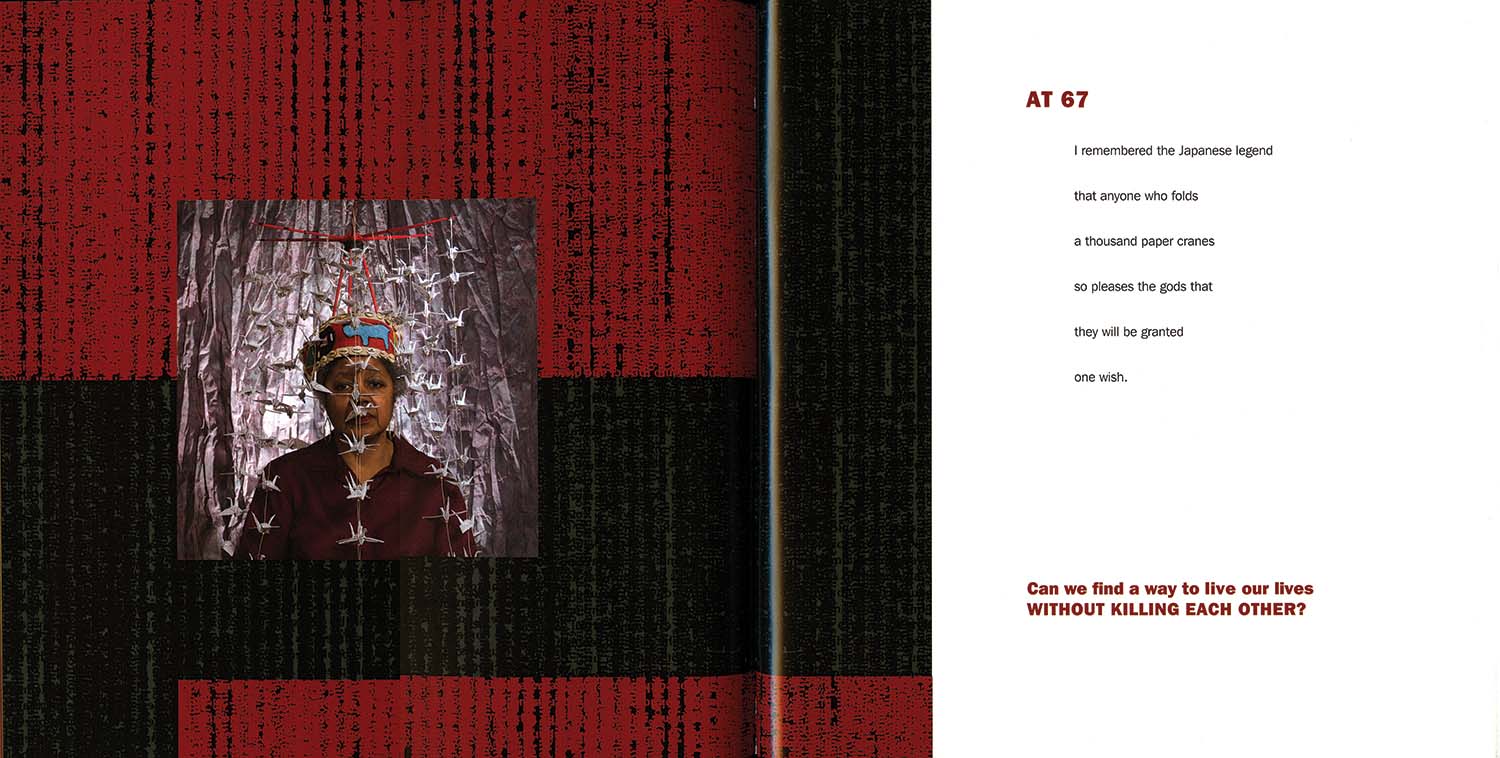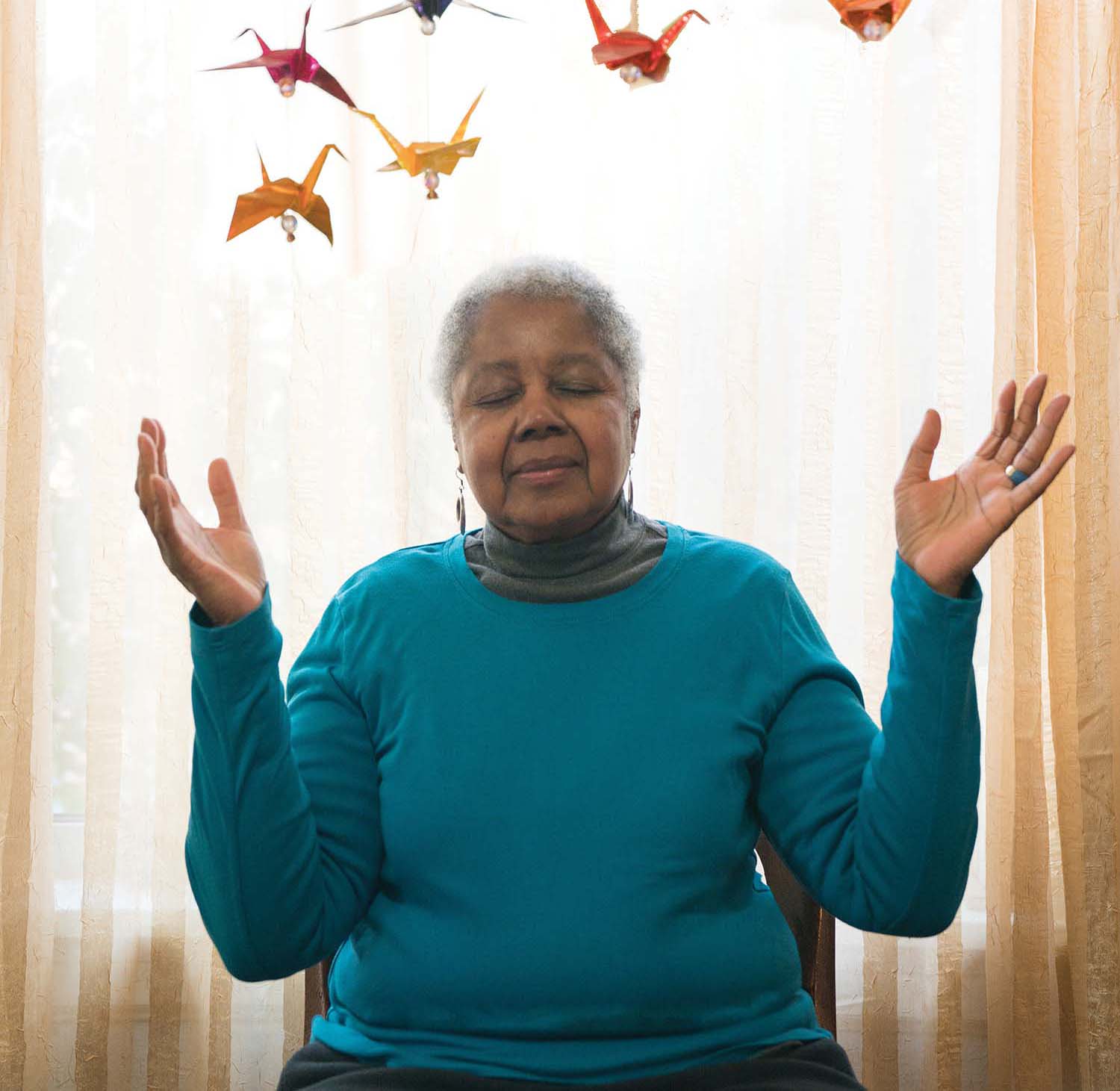
It wasn’t something she sought, but neither did she shrink from the enormous burden. At age 15, Clarissa Sligh agreed to face down the bigotry she’d endured her entire life and become the lead plaintiff in a lawsuit that eventually brought about desegregation in her Arlington, Virginia high school.
“Momma said I didn’t have to if I didn’t want to,” says Sligh. “But I could tell she wanted me to agree.” Emmett Till was still in the news; she recalls seeing frightening images of the 14 year old, lynched in Mississippi for merely speaking to a white woman. But she also drew strength from thoughts of Rosa Parks opting for jail rather than giving up her bus seat to a white man.
When photographs of Clarissa were published in area newspapers, the sudden loss of anonymity affected her deeply. “I often sat alone on the bus, even when it was crowded, because none of the whites would sit beside me.”
Carrying a lifelong love of art but also possessing a penchant for numbers, Sligh spent the early years of her career working as a computer programmer for NASA’s manned space-flight program, and as a financial analyst for Goldman Sachs and Mobil Oil. But she always sought creative refuge. She says her family and friends viewed her artistic endeavors as a frivolous activity they hoped would pass.
It didn’t. Her work over time evolved from painting into photo-text installations and books. The first such effort, titled What’s Happening with Momma, reflected childhood memories. “I began with family snapshots and fragments of stories I remembered about my life before I left home,” she explains. Sometimes the pictures suggested the words; sometimes the words came first.

Another piece, Wrongly Bodied, captured in images and words the story of a woman transitioning into a man. To help her understand the deep yearning for such an enormous change, Sligh associated it with her own story. “When you are close to a person as they question their identity, you have to question your identity, too. I began to think about the fact I would never be able to change my skin and pass for anything other than what I have been — a black woman.” This introspection led to Wrongly Bodied Two, woven around the story of Ellen Craft, a black woman who courageously posed as a white man in order to escape slavery.
Transforming Hate: An Artist’s Book, one of her best-known works, began at the invitation of the Montana Human Rights Network in Helena, Montana. Inspired by the Children’s Peace Monument in Hiroshima, Sligh decided to fold pages from white-supremacist publications into origami cranes.
“While folding cranes, my head, my body hurt from old wounds and scars reopened,” she reveals. In the end, she was able to recast the vitriolic, hateful words into a wish for harmony and peace.
The experience, she says, provided her with the opportunity to
“face some of my own fears about hearing or seeing words directed against who and what I am, or who I am imagined to be.”
Clarissa Sligh, West Asheville, studio hours by appointment (contact her through her website: clarissasligh.com). The artist will appear at 6pm on Wednesday, February 28, at Firestorm Café & Books (610 Haywood Road, firestorm.coop) to read from .